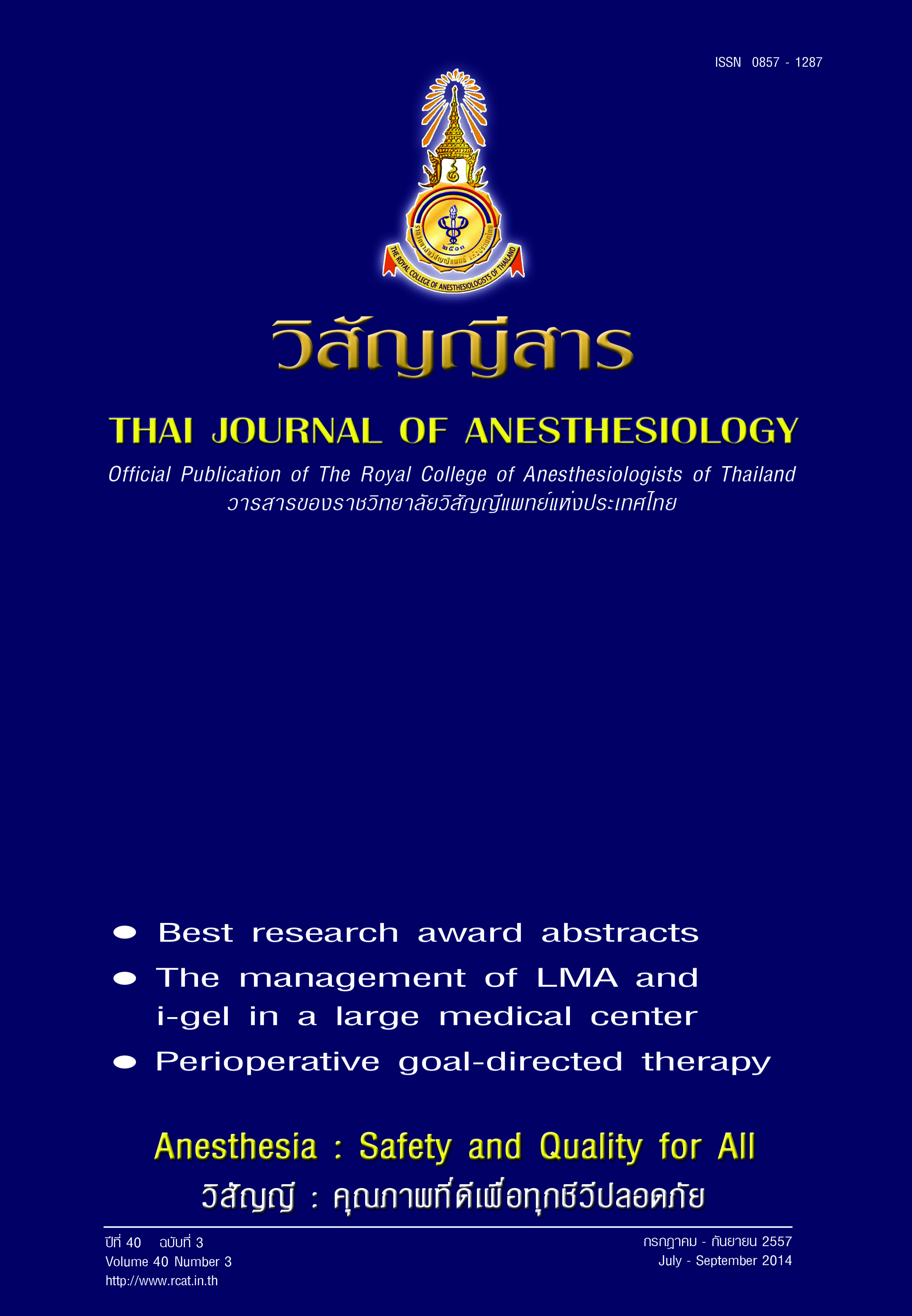The impact of post induction dexmedetomidine infusion for prevent postoperative shivering
Main Article Content
Abstract
Background: This randomized - double blind controlled study was performed to evaluate the efficacy of dexmedetomidine compared with that of placebo (0.9% NaCl) in terms of post - anesthetic shivering prevention and effect on extubation time.
Methods: Sixty patients (ASA I-II) scheduled for elective gynaecologic surgery under general anesthesia were enrolled in the study. The operation time was about one to three hours. Out of the 60 patients, 0.4 mcg/kg/hr of dexmedetomidine was randomly given to 30 patients (D group) while 0.9% NaCl to another 30 in control group (C group) through intravenous infusion. Heart rate (HR), Mean pressure (MAP) and temperature via tympanic membrane, and extubation time were recorded. Shivering scores, pain scores and sedation scores were also recorded at postanesthetic care unit.
Results: Intraoperative HR was lower in dexmedetomidine (D group) compared with that of control group (C group), yet there was no statistical significance (58.2 + .58 vs 61.27 + 7.33 P = 0.142). There was no significant difference in MAP and temperature between both groups. Postanesthetic shivering was seen in 8 patients in control group (26.67%) but was not seen in patients receiving dexmedetomidine (D group). Sedation scores and pain scores of both groups were not different. Similarly, extubation time of dexmedetomidine (D group) and control group was not different either (9.43 + 3.53 vs 9.27 + 2.7 P = 0.842).
Conclusion: Intraoperative intravenous infusion of dexmedetomidine 0.4 mcg/kg/hr without bolus dose can reduce the incidence of postoperative shivering at recovery period and does not delay extubation time.


